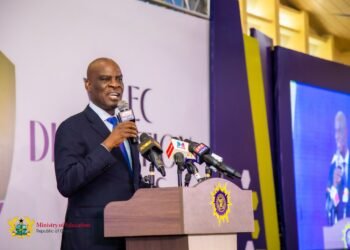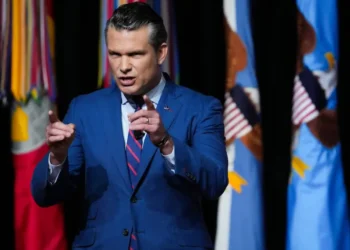President Nana Addo Dankwa Akufo-Addo’s decision to replace the former Commissioner of the Ghana Revenue Authority (GRA), Reverend Dr. Amishaddai Owusu-Amoah, aged 63, with Julie Essiam, aged 61, has brought to light concerns over the adherence to constitutional provisions regarding retirement age and its implications for youth empowerment and institutional growth.
The appointment, made despite the mandatory retirement age requirement of 60 years stipulated in Article 199(1) of the 1992 Constitution, has drawn sharp criticisms from various quarters of society.
Critics argue that such actions not only undermine the spirit of constitutional governance but also perpetuate a culture of favouritism and disregard for meritocracy.
Dr. Kwame Asiedu Sarpong, a respected Pharmacist and Research Fellow at the Ghana Centre for Democratic Development (CDD-Ghana), has been vocal in his condemnation of the decision.
He expressed concern that the replacement of Dr. Owusu-Amoah with someone just above the retirement age implied a lack of confidence in younger professionals within the Ghana Revenue Authority.
“A 63-year-old male is relieved of his position as Ghana Revenue Authority Commissioner-General and replaced by a 61-year-old female in a country where the mandatory retirement age is 60 years. Are we being told no one below the pension age has the required skills mix to do this job”.
Dr Kwame Asiedu Sarpong, CDD-Ghana Research Fellow
Dr. Sarpong while bemoaning the situation, called for broader talent development in the country’s various public agencies to ensure proper and effective succession.
The issue of extending contracts for public officers beyond the retirement age is not a new phenomenon in Ghana.
The case of Dr. Amishaddai Owusu-Amoah, who was granted an extension by President Akufo-Addo despite being due for retirement in August 2020, is emblematic of a broader pattern within the current administration.
Similar instances, such as the appointments of the late 67 years old Kwadwo Owusu Afriyie as the CEO of the Forestry Commission, the appointment of the 65 years Eugene Ofosuhene as the Controller and Accountant General, the appointment of 67 years old Maxwell Kofi Jumah of Ghana Industrial Holding Corporation and 68 years old Isaac Osei of Tema Oil Refinery among others further illustrate how worrying the trend is.
While Article 199(4) of the Constitution allows for such extensions under exceptional circumstances where expertise is in short supply, critics argue that these provisions are often abused, leading to stagnation and limited opportunities for the younger generation.
Addressing of Retention Aging Public Officers
Moreover, the prevalence of unemployment, currently standing at approximately 14.3%, underscores the urgency of addressing issues related to the retention of ageing public officers beyond their mandated retirement age.
By clinging to positions beyond their tenure, these individuals not only deny opportunities for fresh talent but also contribute to the overall unemployment burden in the country.
While it is acknowledged that certain roles may require specialized expertise that is difficult to replace, it is imperative that such extensions are granted judiciously and in alignment with the constitutional principles of fairness and transparency.
Political leaders, especially the President, must therefore exercise restraint and refrain from exploiting loopholes in the law to perpetuate the tenure of ‘favored’ individuals.
The public uproar greeting the appointment of Julie Essiam as Commissioner of the Ghana Revenue Authority must serve as a wake-up call for the government especially the President not to abuse Article 199 (4) which allows some public officers to be given contract extensions by the government solely on condition when their expertise are in short supply at their respective roles.
Upholding constitutional integrity, fostering youth empowerment, and promoting merit-based appointments are essential steps towards building a vibrant and inclusive society where opportunities are accessible to all based on their qualifications.
It is therefore incumbent upon political leaders to lead by example and prioritize the collective interest over personal agendas, thereby ensuring a brighter future for generations to come.
READ ALSO: Senegal’s Democratic Triumph: Peaceful Elections Defy Odds



















